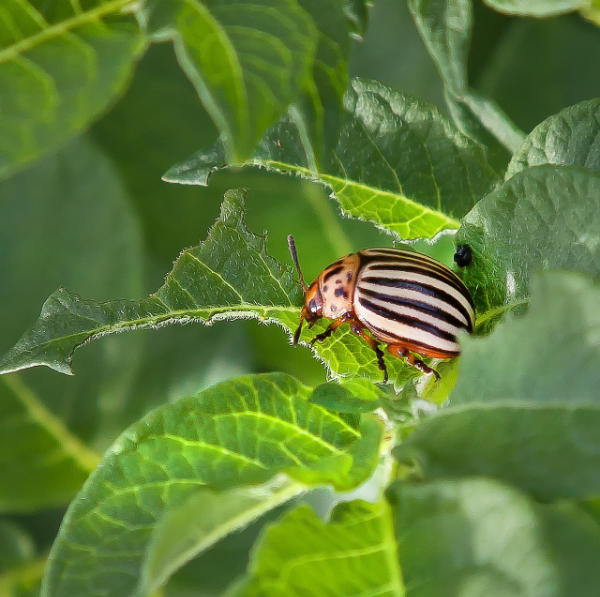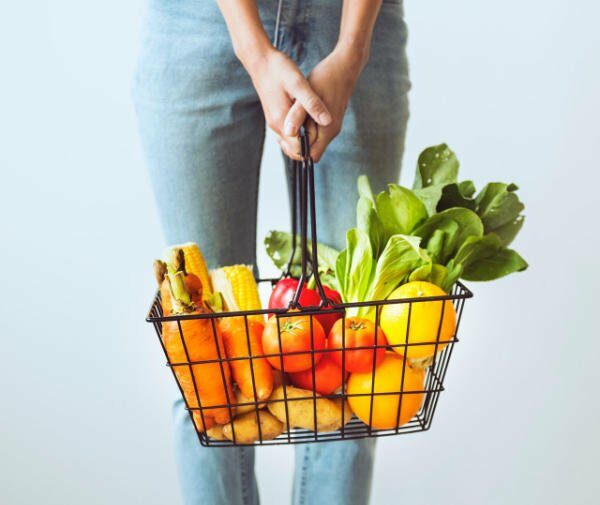If I were to utter the phrase “recipes for the garden” what would you assume I would be talking about? You might think this post is going to be all about cooking vegetables. Instead, this post is about using natural ingredients in your garden for such things as fertilizer and pest control. This explains the title of “Natural Recipes for the Garden”. You can purchase natural ingredients online or at your local farm supply store that can be mixed together to create natural versions of expensive store-bought fertilizers and insecticides. These versions don’t contain the chemicals present in their store-bought versions. They are safer for you and the environment. Since they contain all-natural ingredients they break down in the environment without pollution. They can even enhance your soil in the case of natural fertilizers.
The natural garden recipes below include a list of natural products, such as insecticides and fertilizers, that can be used in any garden. This is a great way to keep your garden looking beautiful without compromising the environment. The best part about using these natural garden recipes is there’s no need for chemicals or poisons!
Natural Organic Fertilizer Garden Recipes
This natural garden recipe is for organic fertilizer. You can use a 5-gallon bucket to stir up this recipe. Get a bucket with a lid, and you can add only the amount you need in your garden and store the rest. Be sure and get a bucket with an airtight lid. These dry ingredients can attract moisture. Measure each ingredient by volume, not by weight. You can buy in quantity online or from a local farm supply house. Seed meals are used to feed livestock, and different parts of the country may have different seed meals readily available. You can incorporate this fertilizer into the soil before planting and also add it during the planting season. There are lots of ways to use fertilizer in your garden and it will help your plants grow faster and stronger. Natural fertilizer is organic material like animal manure, compost, seaweed extract, coffee grounds, or cottonseed hulls that supply plant nutrients such as nitrogen or phosphorus in forms that can be taken up by the plants.
Mix thoroughly together:
4 parts cottonseed meal
1/4 part ordinary agricultural lime, best finely ground
1/4 part gypsum (or double the agricultural lime)
1/2 part dolomitic lime
1 part bone meal, rock phosphate, or manure
1/2 to 1 part kelp meal (or 1 part basalt dust)
Another Natural Garden Recipe
Ingredients:
- 1 part finished compost
- 1 part worm castings
- 1 part bone meal
- 1 part kelp meal
- 1 part rock dust
Instructions:
- Mix all the ingredients together in a large container or bucket.
- Use a garden trowel to scoop the mixture onto the soil around your plants.
- Gently work the fertilizer into the soil using a garden fork or rake.
- Water your plants thoroughly after applying the fertilizer.
Notes:
- Finished compost is compost that has decomposed fully and no longer resembles its original form.
- Worm castings are the excrement of worms and are high in nutrients that plants need.
- Bone meal is a slow-release fertilizer that is high in phosphorus, which helps with root development and flowering.
- Kelp meal is high in potassium, which is important for overall plant health and disease resistance.
- Rock dust is a mineral supplement that can help improve soil structure and provide trace minerals that plants need.
This all-natural garden fertilizer will help improve soil fertility and provide the nutrients that plants need to thrive. Apply it to your garden every 4-6 weeks during the growing season for the best results.
Garlic Pest Control Spray

A natural insecticide is a substance that can be used to prevent or control the growth of insects. The active ingredient may be a chemical substance such as pyrethrum (derived from chrysanthemums), neem oil, rotenone (derived from the roots of tropical plants), or sulfur. Alternately, it may be a naturally occurring substance such as garlic, lemon peel, or onion. A natural pesticide is any type of pest control agent that kills pests but does not contain any ingredients that can harm humans and other mammals, birds, fish, amphibians, or mollusks.
Combining garlic with mineral oil and soap creates an effective pest control product. Note that when applying this as an insecticide it is not selective and can kill beneficial insects as well. It can be used to control cabbageworms, leafhoppers, squash bugs, and whiteflies.
To make this spray do the following:
3 ounces finely chopped garlic
2 tsp mineral oil
1-pint water
¼ ounce liquid dish soap
Allow the garlic to soak in the mineral oil for 24 hours. Add water and liquid dish soap. Stir well and strain into a glass jar for storage. This is your concentrate.
To use: Combine 1-2 tablespoons of concentrate in 1 pint of water to make the spray. Be careful not to make the solution too strong. While garlic is safe for humans, when combined with oil & soap, the mixture can cause leaf injury on sensitive plants. Always test the lower leaves of plants first to make sure they aren’t affected.
Oil To Control Dormant Insects
An oil spray is another natural garden recipe you can prepare easily. An oil spray is used to suffocate overwintering pests, such as aphids and mites. Most commercial products are made of kerosene or other petroleum oil. A much less toxic and more sustainable approach is to use a renewable resource such as vegetable oil.
To make this spray do the following:
1 cup of vegetable oil
2 tbsp liquid soap
1-gallon water
Combine the soap and oil and stir to blend thoroughly. Add the water a bit at a time, stirring as you go (water and oil don’t really emulsify; soap helps the process). Pour the mixture into a clean garden spray container. Spray a coat of the mixture over the entire plant. Shake the container frequently as you are spraying. This recipe makes 1 gallon.
Homemade Insecticide Soap Garden Recipe
Soap has been used for centuries as an all-purpose pesticide. It disrupts insects’ cell membranes and kills pests by dehydration. The key is not to use too much soap, or you’ll also kill vegetation. Follow the proportions of soap to water in this Soap Spray garden recipe and your vegetation should be fine.
1 to 2 tablespoons liquid soap (not detergent)
1-quart water
Combine ingredients, mix, then transfer to a spray bottle. Treat as needed.
All-Purpose Pesticide Soap Spray
Here’s a great natural garden recipe that makes use of spices and roots instead of harsh chemicals. Strong-smelling roots and spices such as garlic, onions, horseradish, ginger, rhubarb leaves, cayenne, and other hot peppers, are all known to repel insects.
Take a handful of one or a combination of these roots and spices and add boiling water. Make sure you have enough water to cover the roots or spices.
Add the roots and spices to the bottom of a mason jar. Cover with boiling water, screw on the top, and let sit overnight. Strain, and add to the Soap Spray from the recipe above. Place into a spray bottle and apply to the plants to control pests. Note that this will rot, so use it all up or freeze leftovers for another time.
Now you have recipes to naturally fertilize your garden and protect it from an invasion of pests. You can do all that without harsh chemicals that can damage the environment.
Be sure and check out our list of articles to discover a wealth of information on gardening and wild edible and medicinal plants.
FAQs:
Q: What are the best homemade fertilizers?
A: Some of the best homemade fertilizers include compost, worm castings, manure tea, Epsom salt, and banana peel tea.
Q: What are 5 examples of natural fertilizer?
A: Some examples of natural fertilizers include compost, fish emulsion, bone meal, seaweed, and coffee grounds.
Q: How can I make nitrogen-rich fertilizer at home?
A: To make a nitrogen-rich fertilizer at home, mix together one part blood meal, one part bone meal, and two parts dried kelp.
Q: What is a good homemade liquid fertilizer?
A: A good homemade liquid fertilizer can be made by steeping compost or manure in water for several days, or by mixing Epsom salt, fish emulsion, and seaweed together in water.
Q: How do you control pests naturally?
A: Pests can be controlled naturally by using methods such as crop rotation, companion planting, physical barriers like row covers, and introducing beneficial insects like ladybugs or praying mantises.
Q: What naturally kills bugs?
A: Some natural ways to kill bugs include using insecticidal soap, neem oil, or diatomaceous earth, as well as introducing predators like nematodes or parasitic wasps.
Q: What home remedy keeps bugs away?
A: Home remedies that can help keep bugs away include using essential oils like peppermint or lavender, planting herbs like basil or rosemary, or making garlic or chili pepper spray.
Q: How do you keep pests out of your garden naturally?
A: Pests can be kept out of your garden naturally by using methods such as companion planting, intercropping, and using physical barriers like netting or row covers.
Q: Does vinegar keep bugs out of the garden?
A: Vinegar can be used to deter certain bugs, but it may also harm beneficial insects and plants, so it should be used sparingly and with caution.
Q: How do you make homemade pesticides for vegetable gardens?
A: Homemade pesticides can be made by mixing ingredients such as garlic, onions, chili peppers, or soap with water, or by using natural oils like neem or peppermint oil.
Q: How do I make a natural insecticide for plants?
A: To make a natural insecticide for plants, mix together ingredients such as water, dish soap, vegetable oil, and garlic or chili peppers, or use natural oils like neem or peppermint oil.
